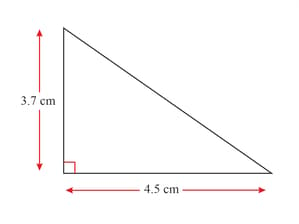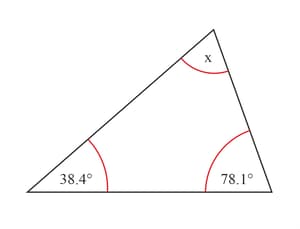Karen Morrison and Nick Hamshaw Solutions for Exercise 5: Exercise 13.5
Karen Morrison Mathematics Solutions for Exercise - Karen Morrison and Nick Hamshaw Solutions for Exercise 5: Exercise 13.5
Attempt the practice questions from Exercise 5: Exercise 13.5 with hints and solutions to strengthen your understanding. Cambridge IGCSE® Mathematics Core and Extended Coursebook Second Edition solutions are prepared by Experienced Embibe Experts.
Questions from Karen Morrison and Nick Hamshaw Solutions for Exercise 5: Exercise 13.5 with Hints & Solutions
Calculate upper and lower bounds for the length of the hypotenuse. The two short sides of a right-angled triangle are cm (to nearest mm) and cm (to nearest mm). Give your answers to the nearest cm.

Calculate upper and lower bounds for .The angles in a triangle are (to ) and (to ).

Calculate upper and lower bounds for as a percentage of to decimal place.Quantity is to the nearest integer. Quantity is to the nearest integer.
The following five masses are given to significant figures. Calculate upper and lower bounds for the mean of these masses.
kg, kg, kg , kg, kg
Gemma is throwing a biased die. The probability that she throws a five is to decimal places. Calculate upper and lower bounds for the number of fives Gemma expects to throw, if Gemma throws the die exactly times. Give your answer to decimal places.
A cuboid of height has a square base of side length . In an experiment and are measured as and respectively, each measured to the nearest . What are the minimum and maximum possible values of the volume in ?
A cuboid of height has a square base of side length . In an experiment, the volume of the block is found to be , measured to the nearest , and its height is measured as , to the nearest . What is the maximum and minimum possible values of the length , in centimetres?
A cuboid of height has a square base of side length . In an experiment, the volume of the block is found to be , measured to the nearest , and its height is measured as , to the nearest . How many significant figures should be used to give a reliable answer for the value of ?
